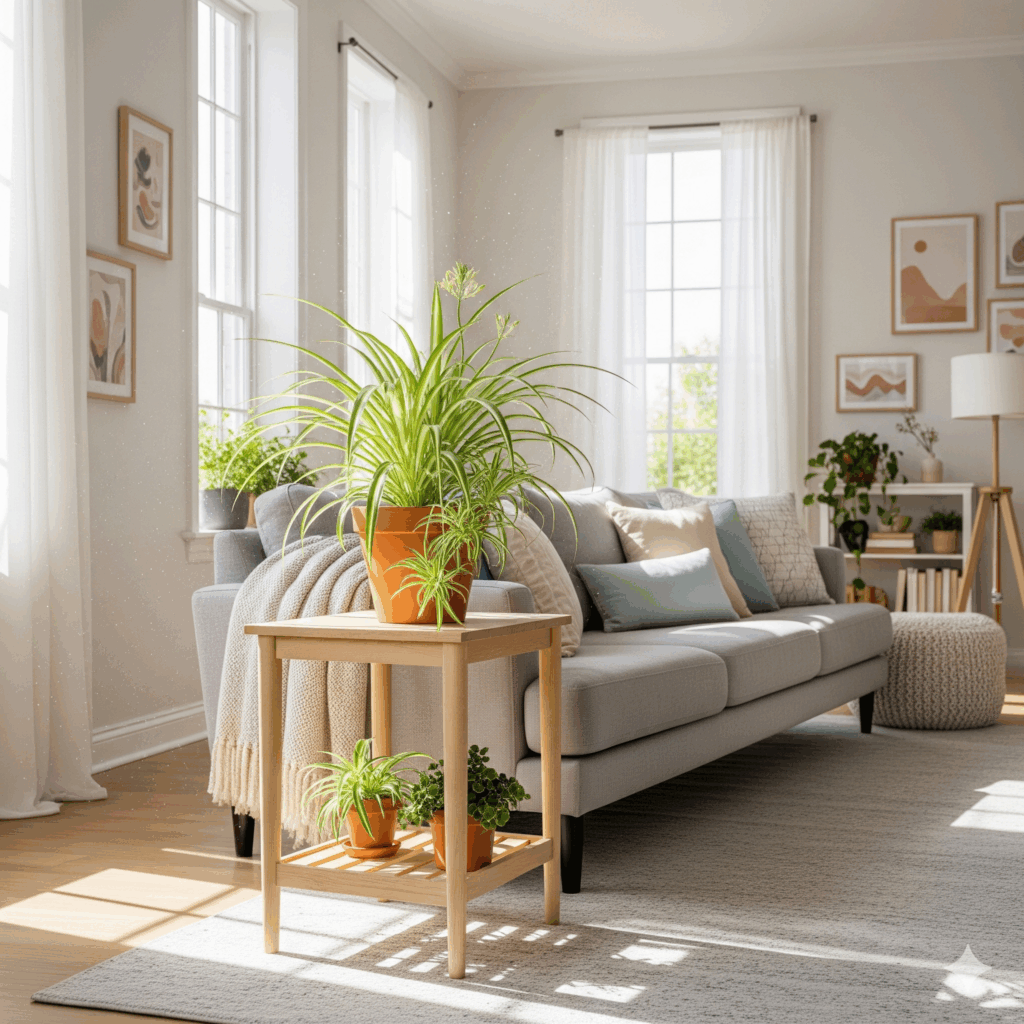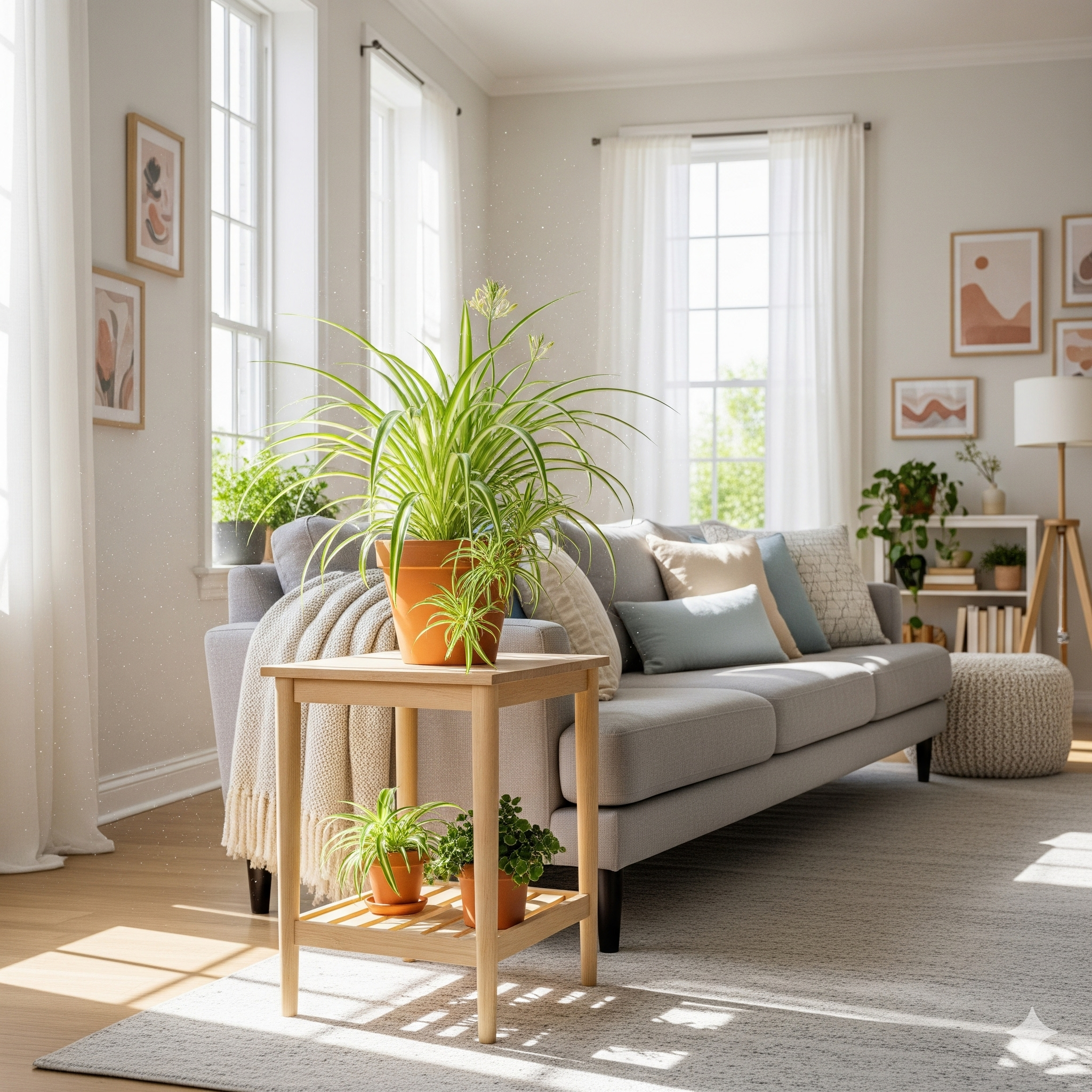It’s completely normal to feel hesitant about bringing new plants into a pet-filled home. The safety of your furry family members always comes first! To help you enhance your living space without worry, we’ve compiled a list of ASPCA-certified non-toxic plants that are safe for both cats and dogs, backed by expert recommendations.
1. Basil (Ocimum basilicum)
Basil is more than just a culinary herb; it’s a fragrant, pet-safe plant perfect for any kitchen or sunny windowsill.
Expert Assurance and Pet Benefits:
Practical Use: Its delightful, subtle aroma enhances your home, and you can pick leaves for your own cooking whenever you need a fresh garnish or an ingredient for pesto.
ASPCA Certified: The American Society for the Prevention of Cruelty to Animals (ASPCA) lists basil as Non-Toxic to Dogs, Non-Toxic to Cats, making it safe for curious nibblers. This is the gold standard for pet safety.
Calming Properties: Studies on basil suggest it has mild calming properties that may help reduce levels of cortisol, often called the stress hormone. Some pet experts note that sprinkling a small amount of fresh or dried basil on a pet’s food may help with mild anxiety, though only in moderation.
Antioxidant Rich: Basil contains powerful antioxidants (including Vitamins A, C, and K) that help fight cell damage.
2. Rosemary (Salvia rosmarinus)
Known for its invigorating scent, rosemary adds a Mediterranean charm to your home and is a safe choice for shared living spaces.
Expert Assurance and Pet Benefits:
Care Tip: Rosemary is a sun-lover! Place it in a south-facing window where it can get plenty of direct light to ensure it thrives and maintains its strong, beneficial scent.
ASPCA Certified: Rosemary is officially listed as Non-Toxic to Dogs and Cats by the ASPCA. This makes it an ideal addition to a home where both pets roam freely.
Natural Calming Effect: The fresh scent of rosemary has been used historically for its calming and stress-relieving effects in humans. While consuming large amounts can cause mild digestive upset in pets due to its volatile oils, a small nibble or simply enjoying its aroma is generally harmless.
Antioxidant and Anti-inflammatory: Rosemary is rich in rosmarinic acid, which is known for its strong antioxidant and anti-inflammatory properties, offering health benefits for all inhabitants of the home.
3. Spider Plant (Chlorophytum comosum)
The Spider Plant is a beloved houseplant for both new plant parents and seasoned experts, offering safety and superior air-purifying qualities.
Expert Assurance and Scientific Data:
- ASPCA Certified: This plant is unequivocally Non-Toxic to Dogs and Cats, making it completely safe if a pet decides to play with its long, arching leaves.
- NASA-Approved Air Purifier: The Spider Plant was prominently featured in the 1989 NASA Clean Air Study (Interior Landscape Plants for Air Pollution Abatement), where it was found to be effective at removing common indoor air toxins, including formaldehyde and xylene. While the air-purifying power of any single houseplant is limited in a large room, this plant contributes to a healthier environment.
- Pet Attraction (Caution Advised): Some anecdotal evidence and studies suggest that the leaves of the Spider Plant may have a mild, harmless opioid-like effect on some cats, which can make them highly attractive—almost like catnip! To prevent your cat from over-indulging and causing a mess (or mild stomach upset), it’s often best to display this plant in a hanging planter.
- Easy Care: The plant is pest-resistant, thrives in indirect light, and is extremely forgiving of neglect, ensuring even the busiest pet owner can keep it healthy.
By choosing these expert-approved plants, you can confidently add color, fragrance, and a touch of nature to your home, creating a safe and vibrant sanctuary for your entire family.


